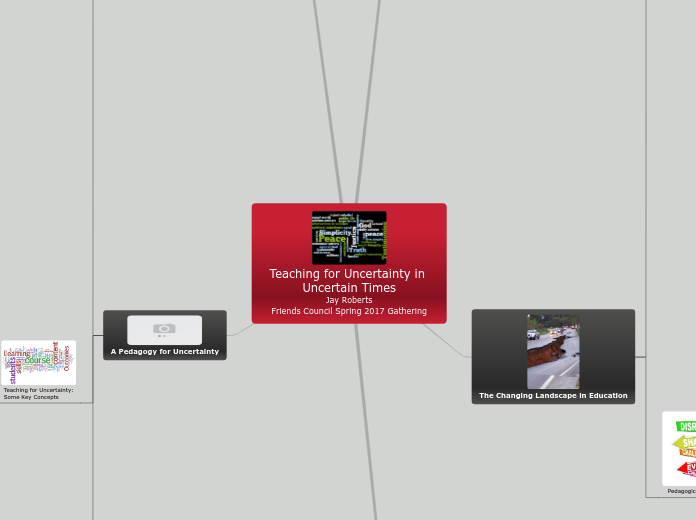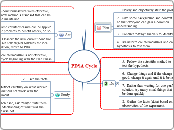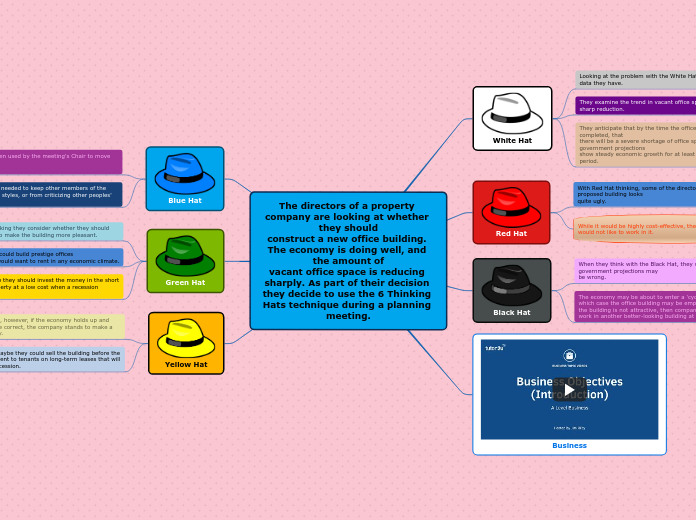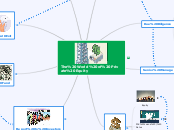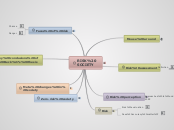Teaching for Uncertainty in Uncertain Times
Jay Roberts
Friends Council Spring 2017 Gathering
A Pedagogy for Uncertainty
Core Methodologies
Cooperative Jigsaw!
Home Groups
What are you doing well in your school in terms of these approaches? What would you like to do more of/improve?
Expert Groups
4. Integrative Learning
High Tech High
3. Community-Based Learning
Hood River Middle School
2. Problem-Based Learning
King Middle School
1. Active Learning
The Indiana Bat
Home groups
How is your school responding to the changing and disruptive landscape in education? How does your school deal with uncertainty both in terms of faculty and students?
Teaching for Uncertainty:
Some Key Concepts
Slow and Fast Learning
Iteration, Reflection, and "Fail Fast"
Instant gratification
David Orr
Data->Information->Knowledge->Wisdom
Authentic Learning
Mattering to someone other than the teacher/student
Natural History of San Diego Bay
RFS Guest DJ's
Multi-perspective taking
Civic Engagement
Social dimensions of learning
Facilitator vs teacher
Healthy Risk Taking
"The Land"
Grit and tolerance for adversity
Growth Mindset- failing forward
Expanding Comfort Zones
Eustress vs Distress
Experience Before Label
Can happen at any scale: micro, meso, macro
Capstones, presentations of learning
Study Away
Bill Gates story
Curators of experience
Inquiry-based, constructivist, progressivist, experiential
Building a Tolerance for Ambiguity
Heifetz "Holding Environment"
Gradient: Turning up the heat, turning down the heat
Flight to authority and work avoidance
"The mandate for a leader who is helping a community through adaptive change, then, is to hang in there with them while they work their way in adaptive change. But what we have learned feels a bit vague. We know what won’t work (deciding for someone else or simply telling them what to do—I’m picturing how absurd it would be to command someone to grieve, “Grieve, now, do it. Come on, grieve faster.”) and we know that we have to hang in there with people. But what exactly are we supposed to do? We should construct a holding environment.
Whenever you find yourself leading adaptive change, you must construct a holding environment. A holding environment is a psychological space that is both safe and uncomfortable. Picture the stereotypic dad running alongside the kid learning to ride a bike. The kid is safe in that the dad is there to catch her if she falls. But the kid is uncomfortable because she is the one doing the work—the balancing, the pedaling, the steering. She is the one learning the new behavior. So long as Dad is holding onto the bike, it is not a holding environment because he’s doing the work. But if he is only there with his outstretched arms not quite touching her, then it’s a holding environment.
Let’s define the concept some more. Specifically, a holding environment is uncomfortable enough that a person cannot avoid the problem, but safe enough that the person can experiment with a new way of being."
From: http://leadership.fuller.edu/Leadership/Resources/Part_4-Leading_for_Transformative_Change/III__Constructing_a_Holding_Environment.aspx
"Comfortable being uncomfortable"
Uncertainty
Quakers
Palmer and Live Encounter
Teaching Naked- Jose Bowen
"To avoid live encounters with teachers, students can hide behind their notebooks and their silence. To avoid a live encounter with students, teachers can hind behind their podiums, their credentials, their power" (p. 37).
"We want encounters on our own terms, so that we can control their outcomes, so that they will not threaten our view of the world and self" (p. 37).
G. Fox's "To know experimentally"
To hold lightly
To allow for the possibility you may be mistaken...
Leadings and misleadings
As Way Opens...Clearness and discernment
Queries
Living the questions- Rilke
Experiential education
Crawford's "Build-A-Bear" Curriculum
Unscripted, messy, complex situations
Dewey's "Indeterminate Situation"
Experiment->Expereri->To Test->Risk
Definitions
synonyms: doubt, qualm, misgiving, apprehension, quandary, reservation, scruple, second thought, query, question, suspicion
synonyms: unpredictability, unreliability, riskiness, chanciness, precariousness, changeability, variability, inconstancy, fickleness,
A state of being uncertain
Final Thoughts
The Real Work
"It may be that when we no longer know what to do
we have come to our real work,
and that when we no longer know which way to go
we have come to our real journey.
The mind that is not baffled is not employed.
The impeded stream is the one that sings."
Team Magic Bus
Break!
The Changing Landscape in Education
Pedagogical Disruptors
What new knowledge, skills, and abilities will our teachers and our students need?
How do we work with uncertainty?
What does this uncertain landscape call us to do as educators?
4. Technology
Diana Laufenberg
3. Expansion of the "Informal" Curriculum
"These pressures are disruptive because to this point we have funded and structured our institutions as if the formal curriculum were the center of learning, whereas we have supported the experiential co-curriculum (and a handful of anomalous courses, such as first-year seminars) largely on the margins, even as they often serve as the poster children for the institutions’ sense of mission, values, and brand. All of us in higher education need to ask ourselves: Can we continue to operate on the assumption that the formal curriculum is the center of the undergraduate experience?" (Bass, 2012)
High Impact Learning Practices (AAC&U, 2008)
Immersion experiences
Diversity/global learning
Internships and project-based learning
Undergraduate research
Service learning, community based learning
Collaborative assignments and projects
Learning communities
Where does learning happen?
2. Emerging Neuroscience of Learning
Importance of student-centered exploration FIRST
STANFORD STUDY
"The study involved 28 undergraduate and graduate students as participants, none of whom had studied neuroscience. After being given an initial test, half of the group read about the neuroscience of vision, while the others worked with BrainExplorer. When tested after those respective lessons, the performance of participants who used BrainExplorer increased significantly more – 30 percent – than those who had read the text.
Next the researchers had each of the two groups do the other learning activity: Those who had used BrainExplorer read the text, while those who had read the text used BrainExplorer. All the participants then took another test, and the findings revealed a 25-percent increase in performance when open-ended exploration came before text study rather than after it. (A follow-up study showed identical results for video classes instead of text.)
“We are showing that exploration, inquiry and problem solving are not just ‘nice to have’ things in classrooms,” said Blikstein. “They are powerful learning mechanisms that increase performance by every measure we have.” Pea explained that these results indicate the value for learning of first engaging one’s prior knowledge and intuitions in investigating problems in a learning domain – before being presented with abstracted knowledge. Having first explored how one believes a system works creates a knowledge-building relevance to the text or video that is then presented, he said."
http://blogs.kqed.org/mindshift/2013/07/before-reading-or-watching-videos-students-should-first-experiment/
Holistic
Multi-modal
Emotion
Brain-Body connection
Pattern Seeking
IBFVTNOJBLKFJ
Reflection
Relevance and WIIFM
JFK LBJ ON TV LBJ
Neuroplasticity
Resilience and a tolerance for ambiguity
Metacognition and learning how to learn
Growth mindset
1. A World of "Wicked" Problems
Wicked Problems
Solvable by any one discipline?
Do our current educational structures prepare students to work and thrive in these kinds of contexts?
The world is full of complex, unscripted problems where the answers are not immediately known and the consequences matter.
"Easily" solvable?
Time stress
Uncertain, unclear data
High potential for unforeseen consequences
Dispersed responsibility and power
Contested and Complex
Racism, Hyper-Nationalism, Xenophobia
Water Rights
Terrorism
Zika/Global Health
Income Inequality
Climate Change
Feb. 22, 2011 Christchurch Earthquake
Instruction vs Learning
Barr and Tagg
Out of the rubble...
Stasis
Introductions and Overview
Introductions
More about us
Pair shared progression
3. A question or query I have about this topic is...
2. Typically, how I respond to uncertainty is...
1. Something I am uncertain about...
More about me
Mihi Mihi
Overview of the morning
Final reflections
A Pedagogy for Uncertainty (11:00-11:30)
Break (10:45)
Discussion
Changing Landscape of Education (9:45-10:15)
Opening activities (9:30-10:00)
Welcome and Introductions
